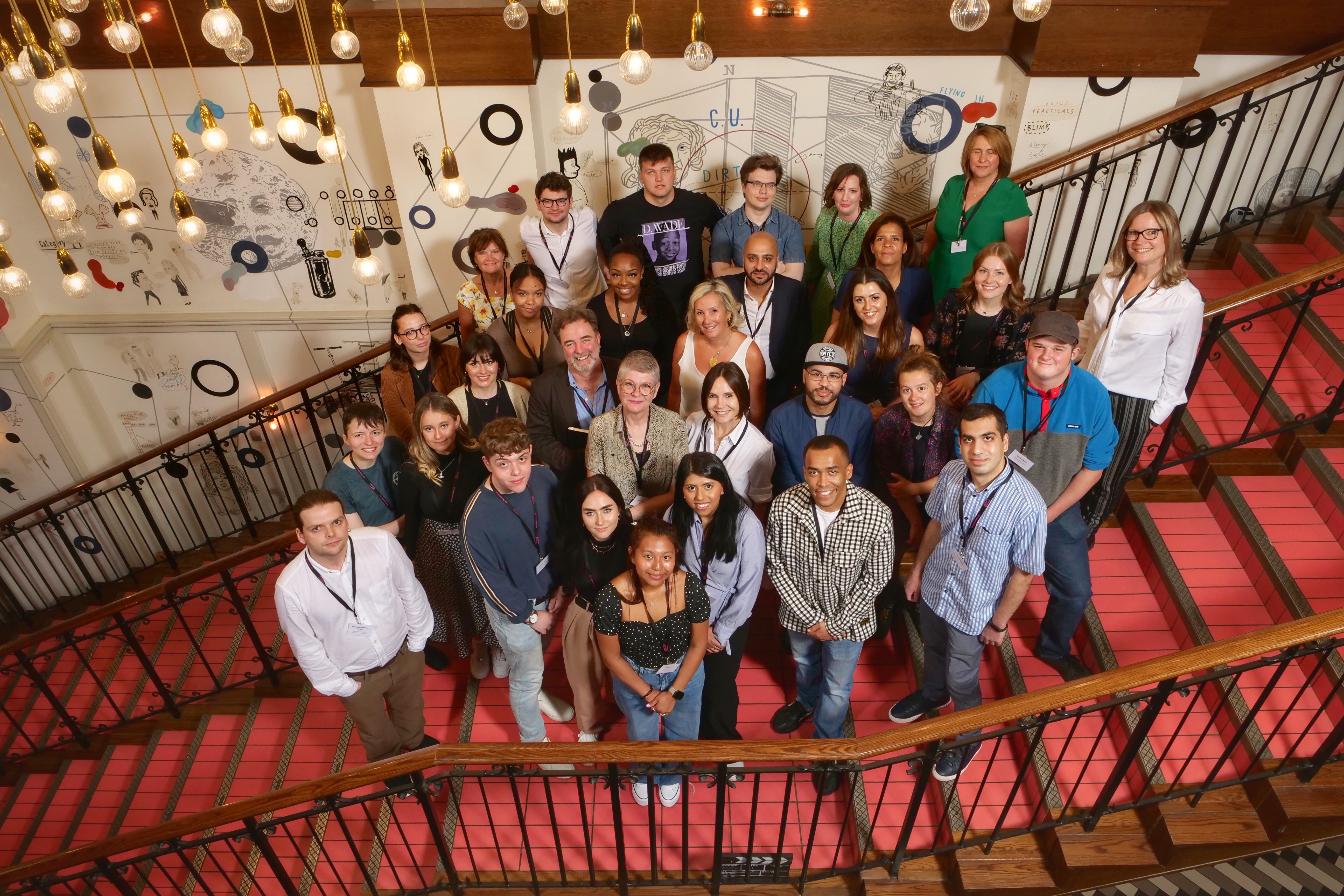The ScreenSkills Apprenticeship Pilot demonstrated that apprenticeships are a viable career pathway for people from diverse, working class backgrounds.
- 76% of apprentices in the pilot secured further employment by end of the programme
- 75% of apprentices would recommend a screen industries apprenticeship
- 85% of apprentices felt they were better prepared for employment
- 26% of apprentices were from working class backgrounds, higher than the general UK workforce
- ScreenSkills welcomes the Government’s proposal for a Growth and Skills Levy
Between February 2022 and January 2024, ScreenSkills ran a flexi-job apprenticeship agency (FJAA) pilot programme with lead supporter Prime Video, Sky with APX Content Ventures, Banijay, Lime Pictures and Fremantle. The pilot, co-funded by the Department for Education in its first year, tested whether a limited agency-based apprenticeship model could be effective in the project-based film and TV production sector.
“Overall, this pilot has been a success and demonstrates that apprenticeships could be a credible career pathway, especially for candidates from diverse backgrounds. Not only did the majority of apprentices complete their training and subsequently swiftly secured further employment in the industry, but it also had an impact on them personally,” commented Laura Mansfield, CEO, ScreenSkills.
“The UK screen industries is one of the most creative sectors in the world and talent, ability and creativity should not be defined by educational or social background. The pilot identified a number of areas for improvement which, if resolved, could make apprenticeships a viable option for anyone who wants a career in the sector.”
During their training, the pilot enabled apprentices to gain significant experience across multiple companies and productions, and to identify and secure further employment. At the end of the pilot, 85% of the apprentices passed their End Point Assessments (EPA) and by the end of the programme 76% of the apprentices had already secured further employment. As well as contracts with Banijay, Fremantle and Lime Pictures, apprentices from the pilot secured further employment with 19 other production companies including Hat Trick, ITN, Mindhouse, Molinare and Studio Lambert.
Apprentices’ feedback on their personal development during the programme has also been very positive. Three quarters said they would recommend an apprenticeship in the screen industries; 90% said the programme improved their communication skills and 85% that it had made them better prepared for employment. Additionally, the majority said that the training helped to build their confidence and their ability to work as part of a team.
“Banijay UK was very excited to be invited to take part in the flexi apprenticeship pilot by ScreenSkills. Apprenticeships should be a key pillar in upskilling the industry, providing opportunities and democratising opportunity within the industry. We were lucky enough to have apprentices in key skills areas, production accounting and production management,” commented Bella Lambourne, Director of Human Resources and Operations, Banijay.
“The training provided has enabled the apprentices to go to the next level and in some cases build entirely new careers with a professional qualification behind them that we hope will stand them in good stead for the rest of their careers. Apprenticeships need to be as flexible as possible to work in the creative industries and this would not have been possible without the support of ScreenSkills.”
In the FJAA pilot, 26% of the apprentices were from working class backgrounds, which was higher than the percentage in the general UK workforce (23%). Also, just over two-thirds of the apprentices were aged between 20 and 30 years of age, and almost 30% transferred from full-time employment in other sectors.
However, the pilot also highlighted areas for improvement. The flexi-job apprenticeship agency route is an expensive training model, with the partners having to meet additional costs beyond training alone in areas including apprentice wages during leave and training, recruitment, as well as the internal costs associated with the time intensive requirement of coordinating continuous and appropriate placements.
The pilot also highlighted the need to improve both apprenticeship standards and the end point assessment process, to ensure that apprentices had the best opportunity to successfully complete training fully relevant to their job.
ScreenSkills continues to believe that changes are necessary in specific areas. Not only would the changes deliver further benefits for both potential apprentices and employers, but they would enable apprenticeships to play an important role in addressing the sector’s skill shortages as well as improve inclusion and diversity. Therefore, ScreenSkills also welcomes the Government’s proposals for a Growth and Skills levy that would give companies greater flexibility in how they invest in skills and training.
“Apprenticeships provide a real opportunity to improve the diversity of the workforce and bring different and existing new voices and perspectives into the industry,” concluded Laura Mansfield.
“Furthermore, ScreenSkills welcomes the Government’s plan for a Growth and Skills levy. Not only would it unlock greater potential to invest in skills and training across the industry but could also improve the take up and affordability of apprenticeships for future candidates and employers alike.”
Find out more about the Flexi-Job Apprenticeship Agency Pilot (February 20222 to January 2024) in the full report.
